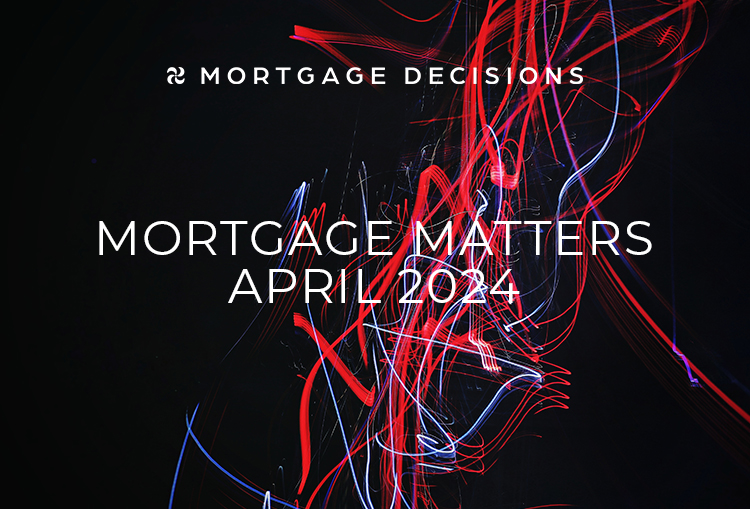- Mortgages
Mortgages
Bad Credit Mortgages
- Shared Ownership
- Insurance
Insurance
Life Insurance for Families
Life Insurance for Seniors
- Specialist lending
- About
- Events

The Bank of England maintained its Bank Rate at 5.25% in March, aligning with widespread expectations. This marks the fifth consecutive freeze since the rate reached its current level in August 2023. Inflation is heading in the right direction, rising to 3.4% in the 12 months to February 2024, its lowest level in over two and a half years (ONS).
As inflation approaches its target, a survey reveals that 61% of economists anticipate the Bank of England to start cutting interest rates in June. Nearly half of the economists surveyed anticipate three rate cuts by the Bank of England in 2024, while some hold more optimistic outlooks, predicting four or five cuts (City A.M).
Activity in the mortgage market has significantly increased, with more applications and a rise in people registering as confidence in the market improves. Although some are still holding off waiting for interest rates to drop, a large proportion are forging ahead, adapting to a new normal characterised by less volatility and increased stability. More people are opting for two-year fixes, hoping for lower rates down the line. Sentiment is improving, with 85% thinking that interest rates will not rise further in 2024 (Clifton Private Finance).
Mortgage approvals, a good leading indicator for market activity, were 40% above the same time last year, the highest level since September 2022 and in line with the long-term pre-Covid monthly average (Dataloft, Bank of England, long-term average is for the ten years to 2019). Net approvals for remortgaging also increased, from 30,900 in January to 37,700 in February 2024. However, with one in three homeowners concerned about keeping up with their mortgage payments (Clifton Private Finance), affordability still needs to rebalance further for a more widespread recovery in the market.
The overall average two- and five-year fixed mortgage rates increased slightly between the start of March and the start of April, but more modestly compared to a month prior. The average two- and five-year fixed rates are currently 5.80% and 5.39% respectively (Moneyfacts). However, the ‘effective’ interest rate, the actual interest paid, on newly-drawn mortgages fell by 29 basis points, to 4.90% in February (Bank of England).
Mortgage product availability continues to increase, with the overall choice of residential products reaching 6,307 options, its highest point in over 16 years. The availability of deals at the 90% and 95% loan-to-value tiers also rose every month (Moneyfacts). This growth in choice is positive news for borrowers with limited deposit or equity, particularly benefiting first-time buyers who may be struggling to find affordable properties. The average shelf-life of a mortgage product has also stabilised to 22 days, up from 15 days at the start of March 2024 (Moneyfacts).
Lenders are continuing to innovate in the mortgage market, even after the government scrapped plans to encourage lower-deposit mortgages in the Spring Budget. Accord Mortgages and Yorkshire Building Society have launched a new 1% mortgage aimed at helping first-time buyers with as little as a £5k deposit onto the property ladder. The fee-free deal will allow homeowners to borrow up to 99% of the property’s value, at a maximum of £500,000, with a deposit of just £5,000.
Disclaimer: The above is for information only. Independent regulated financial advice should always be sought when considering mortgage matters.
Your home may be repossessed if you do not keep up repayments on your mortgage.
There may be a fee for mortgage advice. The actual amount you pay will depend upon your circumstances.
The fee is up to 1% but a typical fee is £595.
